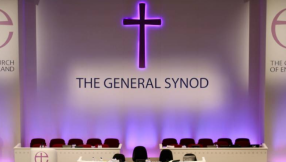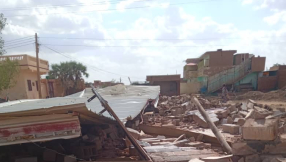Over 1,000 Britons in Lebanon Evacuated to Safety
|PIC1|Radical Muslim preacher Omar Bakri Mohammad, who was banned from Britain last year, was among those who attempted to gain access to board the ship, although he was identified and turned back.
The latest rescue follows HMS York, which on Thursday transported 700 people from Lebanon.
A United Nations (UN) chartered ferry also has been in operation to evacuate others trapped in the southern port of Tyre, which has been hit by Israeli air-strikes.
The head of the worldwide Anglican Communion, the Archbishop of Canterbury has condemned the increasing violence that has hit the Middle East.
Dr Rowan Williams, who leads the 77-million Anglican worldwide Church expressed his alarm at the “spiral of violence, the vicious circle of attack and retaliation, that has developed over the last few days”.
He joins in a chorus of spiritual and political leaders around the world calling for an end to the atrocities.
The world’s most powerful political leaders struggled on Sunday to find ways to prevent the Middle East violence from expanding into an even more extensive war. As the world’s G8 leaders met, they urged Israel to show “utmost restraint” during the difficult time, and blamed Islamic militant group Hezbollah and Hamas for instigating the unfolding crisis, which has now been ongoing for nearly two weeks.
Writing to the Heads of Churches in the Lebanon, Dr Williams said, “I have been alarmed at the spiral of violence, the vicious circle of attack and retaliation, that has developed over the last few days.
|PIC2|“My prayers and sympathy are with the principal victims, the innocent civilians on both sides of the border, who now live in terror and are powerless to prevent the collective suffering at the hands of at the hands of Hizballah and the Israeli military.
”The distress felt at the destruction not only of life but also the infrastructure so painstakingly rebuilt after years of conflict will, I know, be acute and reinforce the sense of helplessness at being caught up in a wider regional struggle.”
Archbishop Rowan Williams concluded, “My condemnation of this resort to violence is unequivocal.”
In addition, the Church of Scotland has united with calls by the World Council of Churches (WCC) and the Middle East Council of Churches (MECC) demanding a halt to the Israeli violence in Gaza.
The statement, made by the convener of the Church and Society Council, Morag Mylne, on behalf of the Kirk’s World Mission and Church and Society, said, “More recently, the escalation in attacks and the spread of fear cause us deep concern and anguish. The Kirk has a long history of engagement with the Israel/Palestine question and believes that negotiation, rather than violence, can be the only way to a resolution,” she said.
“If that process is to be a reality it is necessary for both sides to develop trust and draw back from a cycle of destructive behaviour in which they continue to be engaged.”
|AD|Ms Mylne also stressed the role of the international community in finding a long term solution to the conflict.
“In particular we would encourage Her Majesty’s Government to do all in their power to promote and facilitate meaningful dialogue,” she said.
“We offer our continued prayers for those whose suffering has been heightened in recent days.”
Last week, Israel launched an air offensive on targets in Lebanon following the capture of two of its soldiers by Lebanese guerrillas.
In addition, Hezbollah fighters have been firing hundreds of missiles into northern Israel. More than 300 Lebanese people - mostly civilians - and 29 Israelis, including 15 civilians hit by Hezbollah rocket attacks, have been killed since the fighting began. It has been shockingly revealed that about 30 percent of casualties in the conflict have been children, and a majority of other fatalities being civilians.













